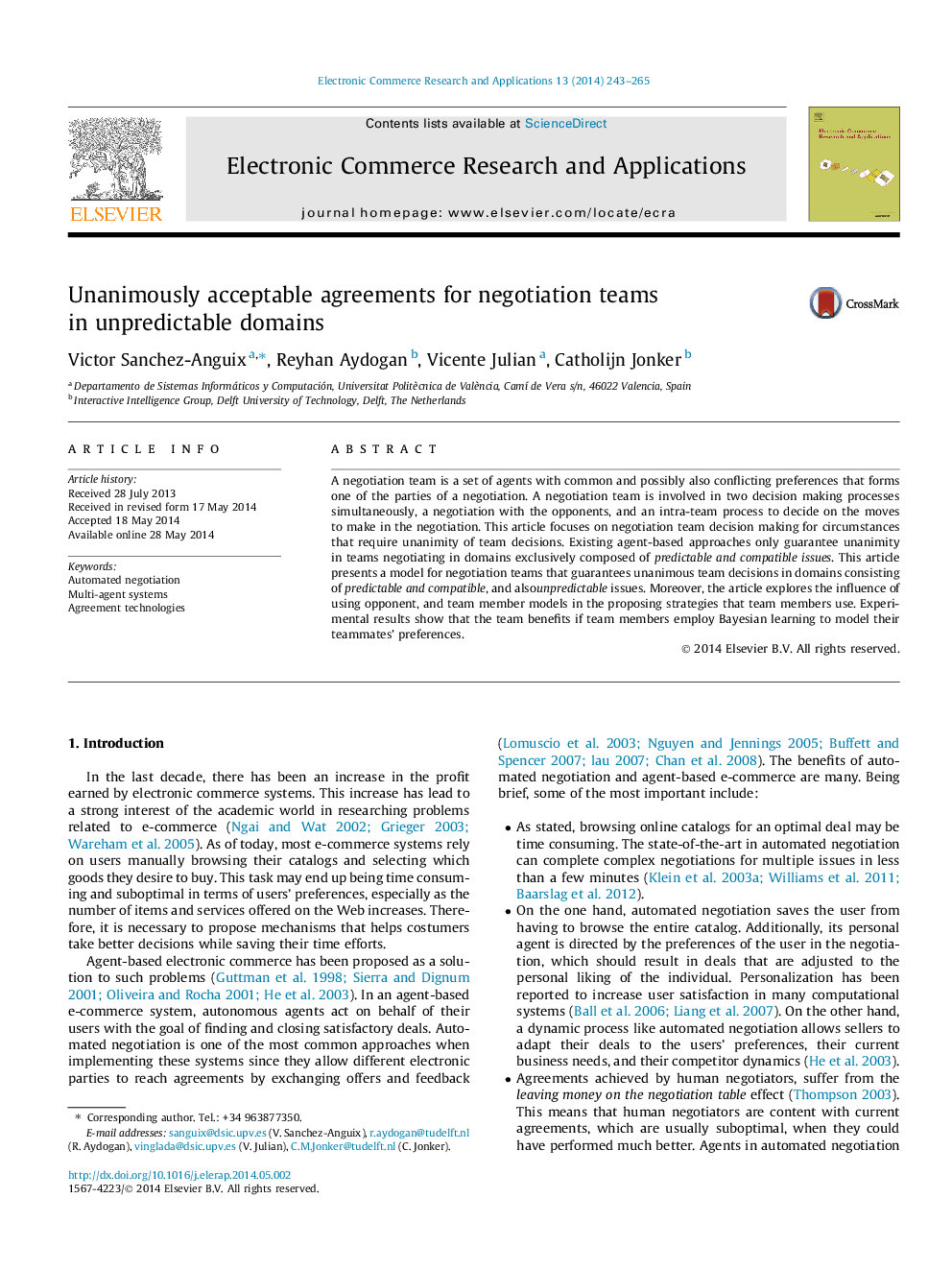| Article ID | Journal | Published Year | Pages | File Type |
|---|---|---|---|---|
| 379609 | Electronic Commerce Research and Applications | 2014 | 23 Pages |
•Extended agent negotiation team models to assure unanimity for team decisions in domains with unpredictable issues.•The proposed model outperforms existing negotiation team models against different families of negotiation opponents.•As long as preferential conflict is present among team members, the team benefits from the inclusion of Bayesian members.
A negotiation team is a set of agents with common and possibly also conflicting preferences that forms one of the parties of a negotiation. A negotiation team is involved in two decision making processes simultaneously, a negotiation with the opponents, and an intra-team process to decide on the moves to make in the negotiation. This article focuses on negotiation team decision making for circumstances that require unanimity of team decisions. Existing agent-based approaches only guarantee unanimity in teams negotiating in domains exclusively composed of predictable and compatible issues. This article presents a model for negotiation teams that guarantees unanimous team decisions in domains consisting of predictable and compatible, and alsounpredictable issues. Moreover, the article explores the influence of using opponent, and team member models in the proposing strategies that team members use. Experimental results show that the team benefits if team members employ Bayesian learning to model their teammates’ preferences.
